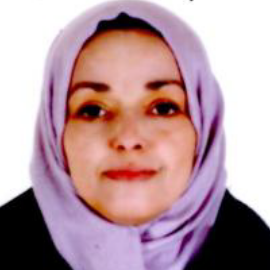
Fatma Boufera
Work place: Department of Computer Science, University of Mustapha Stambouli, Mascara, 29000, Algeria
E-mail: fboufera@univ-mascara.dz
Website:
Research Interests: Computer systems and computational processes, Artificial Intelligence, Robotics
Biography
Fatma Boufera received her Engineer degrees in Soft Engineering and in Industrial Computing from Oran University, Computer Science Department, Algeria, in 2000 and 2007, respectively.
She received her PhD degree from Oran University, Algeria in 2014. She is currently associate professor and research member at Mascara University Institute of Sciences and Technology, Algeria. Her research interests include mobile robotics and artificial intelligence.
Author Articles
An Advanced Heuristic Approach for the Optimization of Patient Flow in Hospital Emergency Department
By Oussama Derni Fatma Boufera Mohamed Faycal Khelfi
DOI: https://doi.org/10.5815/ijisa.2019.09.04, Pub. Date: 8 Sep. 2019
Hospital institutions are one of the most serious organizations over the world, due to their core duty in saving lives, by providing healthcare in an efficient and swift way. Emergency Department (ED) is the main entrance to the hospital, which takes on charge the primary treatment of patients under a time restriction. Many recent studies focused on minimizing the patient Length Of Stay (LOS) by extending resources or altering ‘ED’ organization (medical teams, scheduling, etc.), without defecting the fundamentals processes. The objective of this study is to improve patient care quality. The improvement is based on resource extending, in order to determine the suitable amount of resource to be added, a Fuzzy Logic system was designed to calculate the target improvement appropriated with the amount of resource and the number of incoming patients. Then, a colored Petri net simulation model was built to measure the reached improvement by comparing it to the current system state. The case study was realized at the ‘ED’ of Benaouda Benzerdjeb Hospital, located in Oran city, Algeria. As the results of this study, the total patient length of stay inside the ‘ED’ was minimized, as well as the rate of treated patients.
[...] Read more.Modeling and Optimizing Patients’ Flows Inside Emergency Department based on the Simulation Model: A Case Study in an Algerian Hospital
By Oussama Derni Fatma Boufera Mohamed Faycal Khelfi
DOI: https://doi.org/10.5815/ijieeb.2019.04.03, Pub. Date: 8 Jul. 2019
In Algeria, as in many other countries, the Emergency Department (ED) of the hospital, is the main entrance to the hospital, which provides Healthcare to patients threatened with death, and which faces several issues, emphasized by resource limitation. Our work presents a description of patient flow inside the ‘ED’ of Chalabi Abdelkader Hospital, Mascara, Algeria. This study aims to prevent the care complication scheme by adopting a workflow approach in order to design the patient flow in the chosen ‘ED’. The objective is to enhance patients’ flows, to improve the quality of the patient supervision, by targeting the minimization of the total and waiting times. A simulation model of the study system will be built based on the acquired data, and it will be validated by domain experts for a maximal rapprochement to the reality. Then, many simulations instances will be realized using Rockwell ARENA simulator to evaluate the impact of the proposed solutions. As a result of this study, we provided to ‘ED’ supervisors many improvement solutions and recommendations to the issues identified in the modeling phase.
[...] Read more.Fuzzy Inference System Optimization by Evolutionary Approach for Mobile Robot Navigation
By Fatma Boufera Fatima Debbat Nicolas Monmarche Mohamed Slimane Mohamed Faycal Khelfi
DOI: https://doi.org/10.5815/ijisa.2018.02.08, Pub. Date: 8 Feb. 2018
The problem in the autonomous navigation of a mobile robot is to define a strategy that allows it to reach the final destination and avoiding obstacles. Fuzzy logic is considered as an important tool to solve this problem. It can mimic reasoning abilities of the human being in navigation tasks. However a major problem of fuzzy systems is obtaining their parameters which are generally specified by human experts. This process can be long and complex. In order to generate optimal parameters of fuzzy controller, this work propose a learning and optimization process based on ant colony algorithm ACO and genetic algorithm operators (crossover and mutation).We present a comparison between inference system for autonomous navigation based on fuzzy logic before and after learning. The simulated results show clearly the impact of the optimization approach improves the fuzzy controller performance mainly in obstacle avoidance and detection of the shortest path.
[...] Read more.Mobile Robot Navigation using Fuzzy Limit Cycles in Cluttered Environment
By Fatma Boufera Fatima Debbat Lounis Adouane Mohamed Faycal Khelfi
DOI: https://doi.org/10.5815/ijisa.2014.07.02, Pub. Date: 8 Jun. 2014
This paper proposes a hybrid approach based on limit-cycles method and fuzzy logic controller for the problem of obstacle avoidance of mobile robots in unknown environment. The purpose of hybridization consists on the improvement of basic limit-cycle method in order to obtain safe and flexible navigation. The proposed algorithm has been successfully tested in different configurations on simulation.
[...] Read more.Other Articles
Subscribe to receive issue release notifications and newsletters from MECS Press journals